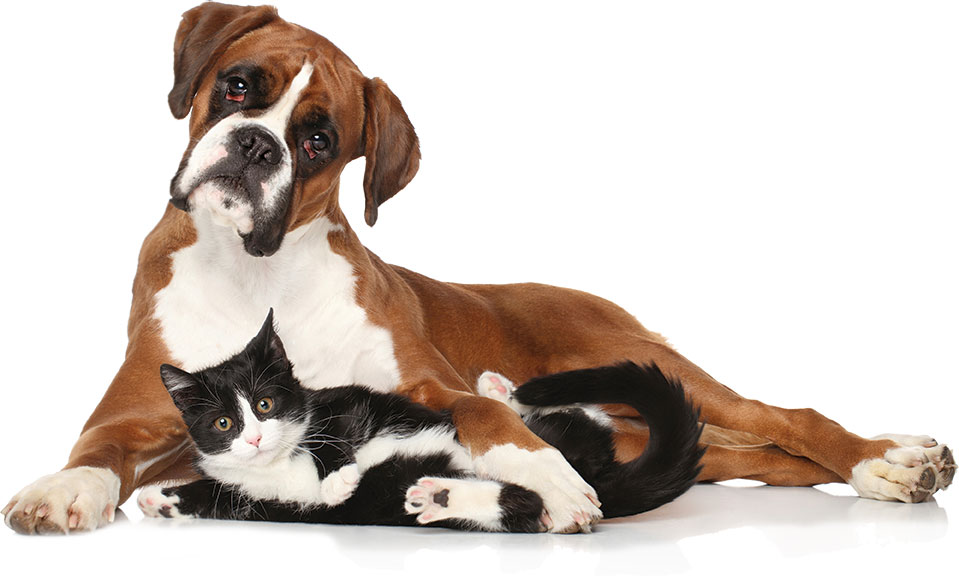How Pets Impact Your Family
by Lisa A. Beach | Staff Writer
It’s 6 a.m., and you hear your baby whimpering. He’s probably hungry, but you just want to sleep a little longer. Nevertheless, like any good parent, you get out of bed to feed him.
But you’re not feeding your infant son. You’re feeding Comet, your beloved golden retriever, who is such an integral part of your family that you’re willing to get up at the crack of dawn for him.
Why do you care so much? And what does this special bond mean to your family?
As you incorporate a pet into your family’s daily rhythm, he quickly wiggles his way into your hearts. He flashes his “I’ll-miss-you” puppy dog eyes whenever you leave the house and greets you at the door when you come home. He wags his tail when you talk to him and curls up next to your kids, giving them a built-in snuggle buddy. In turn, your family celebrates his birthday, takes selfies with him, plays with him, and takes him on vacation. It’s a two-way love-fest.
“When I’m watching TV, Shadow sits on my chest and rubs his head against me,” explains Kevin, the “parent” of a 25-pound cat. “He’s so heavy that it’s a little hard to breathe. Even though I’m gasping for air after a few minutes, I love his affection.”
Dr. Brian Benjamin of Ohio Drive Animal Hospital in Plano understands the special bond. “We have clients who celebrate Christmas and hang a stocking on the mantle with their pet’s name, just like a kid in the family,” says Dr. Benjamin.
According to the American Academy of Child & Adolescent Psychiatry, growing up with a pet can usher in a host of benefits.
3 Surprising Ways Pets Benefit Your Kids
- Kids learn responsibility. “In many ways, the pet becomes like a child because it depends on its owner for food, water, bathing, and a clean, healthy environment,” says Dr. Benjamin. “And the child becomes like a parent because he takes on the responsibility of helping to care for the pet.”
- Kids learn big-picture lessons about the circle of life, from birth and illnesses to accidents and death. “Loss of a pet is always difficult,” explains Dr. Benjamin. “This can be the first time a child experiences the loss of a loved one. It can lay the groundwork and set the stage for what it means to lose a family member.”
- Kids often confide in their pets, treating them like trusted confidants. Pets listen with no judgment, which helps kids share their feelings. And pets cuddle and provide comfort, which helps kids develop compassion and non-verbal communication skills. Additionally, “I have a son who has special needs,” points out Dr. Benjamin, “and he sometimes relates to pets in the house more easily than he relates to people.”
It’s not just the kids who benefit from pet ownership though. Parents can get in on the tail-wagging benefits, too.
“People who share their houses with pets can have less overall stress because the pets act as a comforting factor,” says Dr. Benjamin. “Studies have shown that petting a purring cat can reduce heart rate and stress level.”
This might just make up for all those mornings when you sacrifice extra shut-eye to get up and feed your “baby.”
For more information on pet care or to contact Dr. Benjamin, call Ohio Drive Animal Hospital at 972-599-2224.
Looking for a great place to adopt a pet?
Try these local resources:
Operation Kindness
3201 Earhart Dr., Carrollton, TX 75006 972-418-PAWS
Founded in 1976, this no-kill shelter is the oldest and largest one in North Texas. Operation Kindness has saved more than 75,000 animals since opening its doors, averaging about 3,000 dogs and cats a year.
Great Dane Rescue of North Texas
PO Box 118725, Carrollton, TX 75011
817-651-2336 | www.danerescue.net
Perfect if you’re looking for a larger dog, this nonprofit provides medical attention and foster care while seeking permanent homes for abused and abandoned Great Danes in the North Texas area.
Take Me Home Pet Rescue
561 W. Campbell Road, Suite 303
Richardson, TX 75080
972-238-7988 | takemehomepetrescue.com
A 100% nonprofit organization committed to reducing our homeless pet overpopulation. All rescued dogs and cats live in foster homes until adopted to experience the love of a “real family” while waiting for their new homes.


